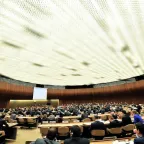ICRC position on the use of toxic chemicals as weapons for law enforcement
… believes that the use of toxic chemicals as weapons for law enforcement purposes should be … agents are defined in the 1993 Chemical Weapons Convention as “[a]ny chemical not … and use of other toxic chemicals as weapons – such as the highly potent …






